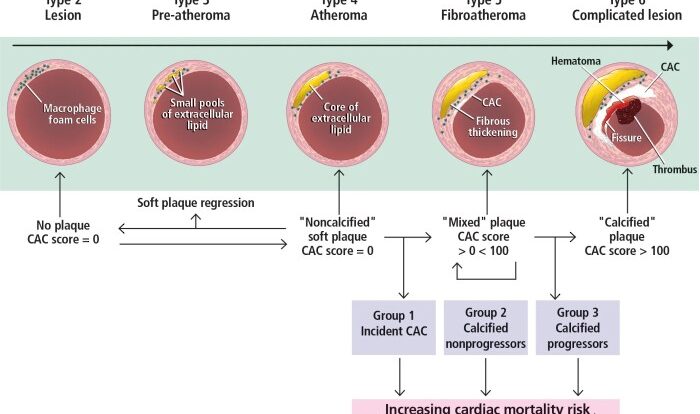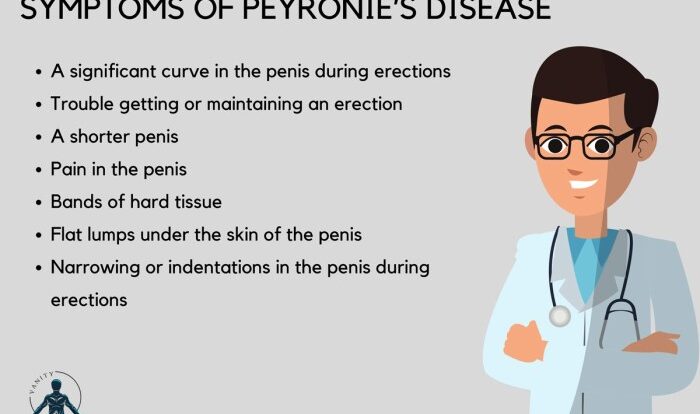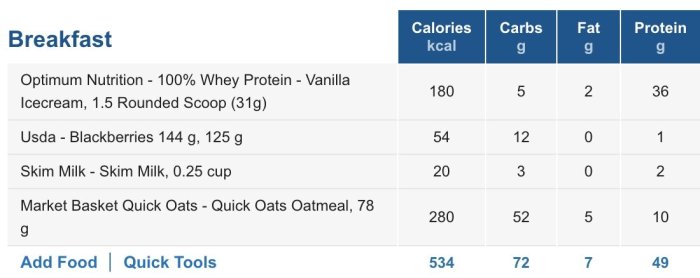Do i need a referral to see a nutritionist – Navigating healthcare systems can be confusing, especially when it comes to accessing specialized services like nutrition counseling. Do you need a referral to see a nutritionist? The answer depends on several factors, including your insurance policy, healthcare system, and specific health needs.
This comprehensive guide will help you understand the referral process, explore alternative pathways, and make informed decisions about your nutritional health.
Consulting a nutritionist offers numerous benefits, from improving dietary habits to managing health conditions. They play a crucial role in preventive healthcare and long-term well-being. However, understanding the referral requirements is essential to ensure timely access to these services.
Understanding Referral Requirements
In the healthcare system, referrals play a crucial role in ensuring patients receive appropriate and specialized care. Referrals are typically issued by a primary care physician or general practitioner to a specialist, such as a nutritionist, when the patient’s condition requires specific expertise or further evaluation.
The need for a referral varies depending on the healthcare system and insurance policies. In some cases, patients may be able to self-refer to a nutritionist without a referral from a primary care physician. However, it is generally advisable to consult with a primary care physician first to determine the most appropriate course of action and to ensure insurance coverage for the consultation.
Variations in Referral Requirements
Referral requirements for nutritionists may vary based on the following factors:
- Insurance policies:Some insurance plans may require a referral from a primary care physician for coverage of nutritionist consultations.
- Healthcare systems:Different healthcare systems may have specific protocols regarding referrals to specialists, including nutritionists.
- Patient’s condition:The severity and complexity of the patient’s condition may influence the need for a referral to a nutritionist.
Benefits of Seeing a Nutritionist
Consulting a registered nutritionist offers numerous advantages for individuals seeking to enhance their dietary habits, manage health conditions, and achieve their weight goals. These professionals possess specialized knowledge in nutrition and can provide personalized guidance to help individuals make informed choices about their food intake.
To answer your question, whether you need a referral to see a nutritionist depends on your insurance and healthcare provider’s policies. Speaking of nutrition, one common concern after gastric sleeve surgery is determining the appropriate calorie intake. If you’re curious about this, I recommend checking out this informative article: How Many Calories Should I Be Eating After Gastric Sleeve . It provides valuable insights into post-surgery calorie needs.
As for the referral, it’s always best to consult your healthcare provider for specific guidance.
Dietary Habit Improvement
Nutritionists can help individuals identify unhealthy eating patterns and develop strategies to improve their dietary choices. They can provide practical advice on meal planning, portion control, and mindful eating, empowering individuals to make sustainable changes that promote overall well-being.
Health Condition Management
Nutrition plays a crucial role in managing various health conditions, including diabetes, heart disease, and digestive disorders. Nutritionists can collaborate with healthcare professionals to develop tailored nutrition plans that complement medical treatment, helping individuals manage their symptoms and improve their quality of life.
Weight Management
Whether seeking weight loss, gain, or maintenance, nutritionists can provide evidence-based guidance to help individuals achieve their goals. They can assess individual needs, create personalized meal plans, and provide support and accountability throughout the weight management journey.
Preventive Healthcare and Long-Term Well-Being
Nutritionists play a vital role in preventive healthcare by promoting healthy eating habits that can reduce the risk of chronic diseases. They can educate individuals on the importance of nutrient-rich foods, hydration, and overall dietary balance, contributing to long-term well-being and vitality.
Alternative Pathways to Nutritionists

While a referral from a healthcare provider is often the traditional route to access nutritionist services, there are alternative pathways that allow individuals to seek consultation without a referral. These methods offer greater flexibility and convenience but come with certain considerations.
In general, you don’t need a referral to see a nutritionist. However, if you’re concerned about the cost of treatment, you may want to check with your insurance company to see if they cover nutritionist services. For instance, if you’re curious about the costs associated with treating Peyronie’s disease, you can find more information here . Ultimately, the decision of whether or not to see a nutritionist is a personal one.
If you’re struggling with your diet or weight, a nutritionist can help you create a plan that meets your individual needs.
Self-Referral
Self-referral involves directly contacting a nutritionist and scheduling an appointment without involving a healthcare provider. This method provides immediate access to nutritionist services, eliminating the need for a referral process. However, it is crucial to verify the credentials and qualifications of the nutritionist before proceeding with services.
Direct Appointments
Some nutritionists offer direct appointments, allowing individuals to book consultations without a referral. This option is similar to self-referral but may provide additional convenience through online scheduling or appointment booking platforms. Again, verifying the nutritionist’s credentials is essential.
Advantages of Alternative Pathways
- Convenience:Self-referral and direct appointments offer greater flexibility and convenience compared to traditional referral processes.
- Immediate Access:These methods allow individuals to access nutritionist services promptly, without waiting for a referral from a healthcare provider.
- Wider Selection:Self-referral and direct appointments provide access to a broader pool of nutritionists, allowing individuals to choose a practitioner based on their specific needs and preferences.
Disadvantages of Alternative Pathways
- Insurance Coverage:Nutritionist services obtained without a referral may not be covered by health insurance, leading to higher out-of-pocket expenses.
- Verification of Credentials:Individuals must take responsibility for verifying the credentials and qualifications of nutritionists when seeking services without a referral.
- Limited Access to Medical Records:Nutritionists who do not receive a referral may have limited access to medical records, which could affect the comprehensiveness of their assessment and recommendations.
Importance of Verifying Credentials
When seeking nutritionist services without a referral, it is crucial to verify the credentials and qualifications of the practitioner. This can be done by checking for:
- Registered Dietitian (RD) or Registered Dietitian Nutritionist (RDN):These are the highest level of credentialing for nutritionists, ensuring they have met rigorous education and experience requirements.
- Board Certification:Nutritionists who are board-certified have demonstrated advanced knowledge and skills in a specific area of nutrition.
- State Licensure:In some states, nutritionists are required to be licensed to practice. Checking for licensure ensures the practitioner meets the minimum standards set by the state.
Insurance Coverage and Reimbursement
Insurance coverage for nutritionist services varies depending on the insurance provider and the specific plan. Some insurance plans may cover nutritionist visits as part of preventive care, while others may require a referral from a physician.
If your insurance plan covers nutritionist services, you will typically need to submit a claim for reimbursement. The claim form will require information about the services you received, the date of the visit, and the amount you paid. You may also need to provide a letter of referral from your physician.
The answer to whether you need a referral to see a nutritionist depends on your insurance plan and the specific nutritionist you want to see. In general, it’s always a good idea to check with your insurance company before making an appointment to see if a referral is required.
Speaking of appointments, have you ever wondered how much does a core needle breast biopsy cost ? It can vary depending on the facility and your insurance coverage. Similarly, the cost of seeing a nutritionist can also vary, so it’s worth checking with your insurance company and the nutritionist’s office before scheduling an appointment.
Submitting Claims for Reimbursement
The process for submitting claims for reimbursement varies depending on the insurance provider. Some insurance providers allow you to submit claims online, while others require you to mail in a paper form. You can usually find instructions on how to submit claims on the insurance provider’s website.
Once you have submitted a claim, the insurance provider will review it and determine if it is eligible for reimbursement. If the claim is approved, the insurance provider will send you a check for the amount of the reimbursement.
Potential Out-of-Pocket Expenses
Even if your insurance plan covers nutritionist services, you may still have to pay some out-of-pocket expenses. These expenses may include the cost of the initial consultation, co-pays for subsequent visits, and the cost of any tests or procedures that are ordered by the nutritionist.
It is important to check with your insurance provider to find out what your out-of-pocket expenses will be before you schedule an appointment with a nutritionist.
Evaluating the Need for a Referral
To determine if you require a referral to see a nutritionist, it’s crucial to assess your health needs and consider several factors:
Severity of the Issue
- If you have a chronic condition like diabetes or heart disease, or if your dietary choices significantly impact your health, a referral is highly recommended.
- For minor dietary concerns or general wellness goals, self-help resources or consultations with a registered dietitian may suffice.
Availability of Self-Help Resources
Explore credible online resources, books, or support groups. These can provide valuable information and support, especially if your concerns are not severe.
Potential Impact on Overall Health
Consider the potential consequences of ignoring dietary issues. If you believe your health may be compromised, seeking professional guidance is essential.
When in Doubt, Seek Advice
If you’re unsure whether you need a referral, don’t hesitate to consult with your primary care physician or a registered dietitian. They can provide personalized advice and determine the best course of action for your specific situation.
How to Obtain a Referral

To obtain a referral to see a nutritionist, you typically need to consult with a healthcare provider, such as your primary care physician or a registered dietitian.
When requesting a referral, it’s important to provide your healthcare provider with a clear explanation of why you believe you need to see a nutritionist. This may include symptoms you’re experiencing, health concerns you have, or specific dietary goals you want to achieve.
Process of Obtaining a Referral, Do i need a referral to see a nutritionist
- Schedule an Appointment:Make an appointment with your healthcare provider to discuss your need for a referral.
- Explain Your Reasons:Clearly state why you believe you need to see a nutritionist, providing specific examples or concerns.
- Provide Relevant Information:Share any relevant medical history, dietary habits, or lifestyle factors that may support your request.
- Obtain the Referral:If your healthcare provider agrees that a referral is appropriate, they will provide you with a written or electronic referral to a specific nutritionist or nutrition clinic.
Time Frame
The time frame for obtaining a referral can vary depending on your healthcare provider’s availability and the urgency of your situation. In general, you can expect to receive a referral within a few days to a week.
If you have an urgent need to see a nutritionist, such as in cases of severe malnutrition or eating disorders, it’s important to communicate this clearly to your healthcare provider and request an expedited referral.
Understanding Nutritionist Qualifications
Choosing a qualified and experienced nutritionist is crucial for achieving optimal results. To ensure you receive the best possible care, it’s essential to understand their education, training, and certification requirements.
Nutritionists typically hold a bachelor’s or master’s degree in nutrition, dietetics, or a related field. They must complete a supervised internship program and pass a national certification exam to become registered dietitian nutritionists (RDNs) or certified nutrition specialists (CNSs).
Types of Nutritionists
There are different types of nutritionists with varying areas of specialization:
- Registered Dietitian Nutritionists (RDNs):Focus on medical nutrition therapy, providing personalized nutrition plans for individuals with specific health conditions.
- Certified Nutrition Specialists (CNSs):Emphasize holistic nutrition, promoting healthy eating habits and addressing nutritional deficiencies.
- Licensed Dietitians (LDs):Similar to RDNs, but licensed at the state level, focusing on foodservice management and nutrition education.
- Clinical Nutritionists:Specialize in providing nutrition therapy in clinical settings, such as hospitals and clinics.
When selecting a nutritionist, consider their qualifications, experience, and specialization that best aligns with your needs.
Preparing for a Nutritionist Appointment: Do I Need A Referral To See A Nutritionist
To make the most of your initial appointment with a nutritionist, it’s crucial to come prepared. Gather your medical history, including any allergies, medications, or current health conditions. Additionally, keep a detailed record of your dietary habits, noting what you eat, when you eat it, and the portion sizes.
Bring any relevant documents, such as lab results or dietary guidelines you’ve received from other healthcare providers.
Setting Realistic Expectations
It’s important to set realistic expectations for your nutritionist appointment. Don’t expect a magic solution or a quick fix. Nutritionists work with you to develop personalized plans that are sustainable and tailored to your specific needs. Be open to feedback and recommendations, and remember that making gradual changes over time is more effective than drastic measures.
Additional Resources
Seeking further guidance on nutritionists and referral requirements? Explore these helpful resources:
Reputable Websites
- Academy of Nutrition and Dietetics
- American Society for Nutrition
- Centers for Disease Control and Prevention: Nutrition
Professional Organizations
Government Agencies
- United States Department of Agriculture: Nutrition
- U.S. Department of Health and Human Services: Office of the Secretary
- U.S. Food and Drug Administration: Food Labeling and Nutrition
Contact Information for Additional Support
For further assistance, contact:
- Academy of Nutrition and Dietetics: 1-800-877-1600
- American Society for Nutrition: 1-301-634-7050
- National Nutrition Council: 1-800-366-1680
Last Point

Whether you need a referral or not, prioritizing your nutritional health is paramount. This guide has provided a comprehensive overview of referral requirements, alternative pathways, insurance coverage, and more. By understanding these aspects, you can make informed decisions about accessing nutritionist services and embark on a journey towards optimal health and well-being.
Query Resolution
Do all insurance policies require a referral for nutritionist visits?
No, some insurance policies may allow direct access to nutritionists without a referral. It’s best to check with your insurance provider for specific coverage details.
What are the benefits of seeing a nutritionist?
Nutritionists can help improve dietary habits, manage health conditions, achieve weight goals, and promote long-term well-being by providing personalized nutrition plans and guidance.
How do I find a qualified nutritionist?
Look for nutritionists with appropriate education, training, and certification. You can also check online directories or ask for recommendations from healthcare professionals.





